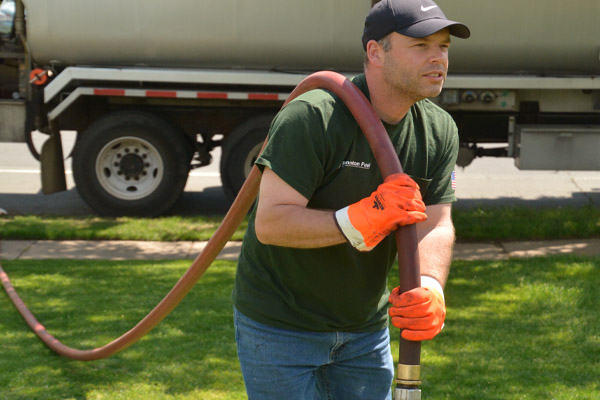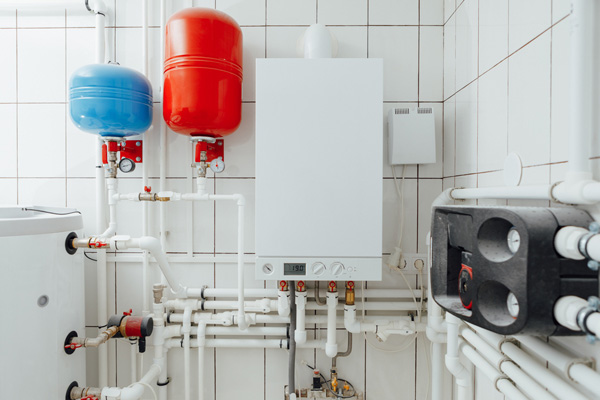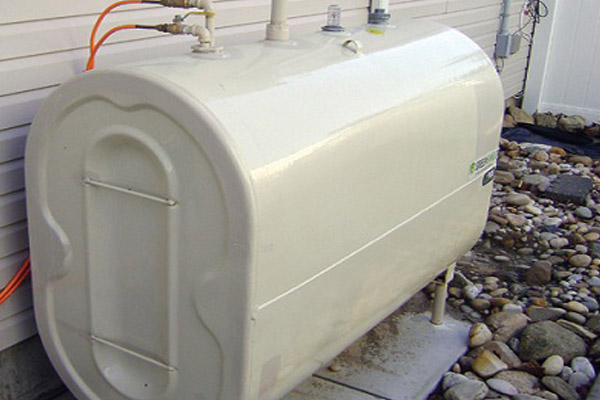
When you need reliable and trusted fuel oil delivery Hamilton NJ or surrounding areas, contact PFO Heating & Air Conditioning.
We offer high-quality fuel oil at the best home heating oil prices today. Also, we specialize in HVAC services. When you need a heater tune-up or repair, our certified HVAC contractors can perform that for you. We are the area’s most trusted home comfort specialists. Be sure to call our office today to schedule an appointment.
How An Oil Heat System Works
Contents
When your indoor temperature falls below your thermostat setting, the thermostat will signal your oil heating system to turn on. Depending on the type of heating system you have, your heater will distribute heat throughout your home. This will involve passing steam through radiators, hot water through baseboards, or warm air through vents. In this article, we will discuss the different types of heating oil systems.
Types Of Oil-Fired Heating Systems

There are basically two main types of oil-fired heating systems: warm air and water-based systems. The latter involves steam systems and hot water systems. As the name suggests, hot air systems heat and distribute air throughout a home. To do this, they make use of a blower, ductwork, and vents. These are found in your walls and floors. As they deliver hot air, the return duct draws back cold air into the heater. This creates, what is known as, the heating cycle.
Water-based systems (hot water and steam systems) first heat water in a steel or cast iron boiler. Then, it disperses the hot water throughout your home either in liquid or gaseous form. Specifically, hot water systems circulate the hot water in liquid form through baseboards or radiators. However, steam systems heat water until it turns to steam (gas). The steam then travels to the radiators through pipes.
Main Components Of An Oil Heating System
The main components of an oil-fired heating system include:
Heating Oil Tank

Depending on the design of a heating oil storage tank, it is above or below ground and outdoors or indoors. However, you must check your storage tank to prevent leaks and contaminants.
Furthermore, make sure that you order high-quality fuel when you schedule your home heating oil delivery. High-quality fuel contains fewer impurities. Impurities affect the amount of sludge buildup and, consequently, the lifespan of your fuel oil tank. Therefore, even if you have to pay a few more cents per gallon for better oil, it is worth it because you’ll be paying less in the long run.
Burners
When your heater is on, heating oil moves from the tank to the burner. To ensure the oil ignites inside the combustion chamber, the burner atomizes the oil and mixes it with air (oxygen).
Heat Exchanger
When the air/oil mixture ignites, the resulting flame heats a series of metal tubes called a heat exchanger. Because the heat exchanger is a good conductor of heat, it stays hot for a long time. Your return duct passes cold air across the heat exchanger, allowing the heat exchanger to heat the air.
Blower
The furnace‘s blower distributes the heated air throughout your ductwork, which runs throughout your home.
Flue
Burning heating oil releases carbon monoxide and other potentially poisonous gases.CO is a byproduct of combustion. To protect your home from such gases, your heating system has a flue pipe that releases these gases outside your home, improving your indoor air quality. However, to be on the safe side, you should install carbon monoxide detectors throughout your home.
Generally, heating oil systems will give obvious signs before the dangers of a carbon monoxide leak is present. However, it is better to have these detectors than not. Even if you do not use heating oil to heat your home, all heating systems have the possibility of a CO leak as it is a natural byproduct of combustion. Therefore, all homes should have these CO detectors.
Maintenance
To keep your heating system in pristine working condition, you should hire a qualified HVAC technician to perform regular annual preventative maintenance checks.
Conclusion
The two main types of oil-fired heating systems include water-based and hot air systems. These systems work by heating either air or water. The system then distributes the heated air/water throughout a home through ductwork/vents or pipes. The main components of an oil-fired heating system include the oil storage tank, burners, heat exchanger, blower, and flue pipe.
For safety reasons, install carbon monoxide detectors throughout your home. Additionally, hire a qualified HVAC technician to inspect, clean, and repair your heating system regularly. Also, when looking for fuel oil delivery near me or the best local fuel oil prices, be sure to order your fuel from a reputable dealer, like PFO Heating & Air Conditioning.
Call PFO Heating & Air Conditioning For Reliable Oil Deliveries

When you’re searching for a reputable heating oil delivery company, you can contact PFO Heating & Air Conditioning.
We offer the best home heating oil delivery and the most reasonable heating oil prices in the area. Our team of expert technicians also provides HVAC services to help improve the performance and efficiency of your heating equipment.
Call PFO Heating & Air Conditioning today and learn more about the services we offer. We will be happy to answer all your questions and concerns.
Click here to contact us now or call us at (800) 253-9001 to find out more!



